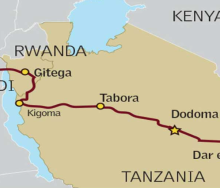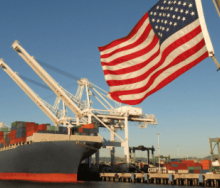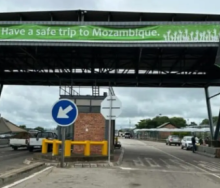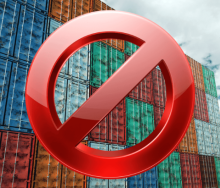The South African economy has entered an upswing, with many industries now experiencing a spike in activity above levels seen before the onset of the Covid-19 pandemic, according to the latest PwC economic outlook report.
However, the report - SA Economic Outlook ‘A Challenging Time for Consumers’- noted that the country was experiencing “jobless growth”.
It highlights a possible decline in the unemployment rate in 2022 from 31.4% to 31%, CPI of around 4.6%, and a rise in the SA Reserve Bank’s repo rate from 3.75% in 2021 to 4.75, with several rate hikes predicted for the year.
PwC anticipates that the rand/dollar exchange rate will average between R15.05 and R15.28 in 2022.
It also highlighted the impact of the loosening of Covid-19 lockdown restrictions on the economy.
“The fact that December closed, and January has continued, with no tightening of lockdown rules, suggests that South Africa has entered 2022 en route to a new post-lockdown era.
“In this paradigm, Covid-19 has moved from being a pandemic to being endemic,” PwC said.
“It's highly unlikely that the economy will again see significant lockdown restrictions outside of broader social distancing and other medical steps to combat virus transmission.
“Nonetheless, a level one lockdown is likely to continue in the short term until legislation is in place to cope with the challenges of Covid-19 outside a state of emergency.
“The post-lockdown economy’s key pandemic-related challenge is no longer domestic policies but those abroad.
“At present, 100 countries still have total travel bans in place against South Africa, with another 123 applying specific restrictions like quarantines upon arrival,” PwC said.
However, the economists’ analysis of data showed that many South African industries were currently seeing activity levels above those seen prior to Covid-19.
“The index for manufacturing production was 19.8% higher in November compared to the seasonally adjusted level recorded for the last month of 2019. This reflects an improvement in demand conditions both locally and abroad,” PwC said.
“Elsewhere, the value of seasonally adjusted real (inflation-adjusted) retail sales was marginally higher in the most recent month
“In turn, the value of real spending at restaurants and coffee shops is only 77.4% of the pre-pandemic level. The number of unit nights sold in tourist accommodation is just more than half that seen prior to the arrival of Covid-19,” the report noted.
PwC economists reported that despite the signs of a rebound in the economy, unemployment levels remained high, mainly due to the closure of firms.
Statistics South Africa recorded the liquidation of 982 companies and 828 close corporations during the first 11 months of 2021.
This followed a total of 2 035 liquidations in 2020.
“The closure of companies due to the pandemic, load-shedding and other factors, and scaling down of activities by others, have had a big negative impact on South Africa’s employment over the past two years. Furthermore, following the week-long unrest in July 2021, and the adverse impact that this had on economic activity and physical infrastructure, Gauteng and KwaZulu-Natal lost a combined 323 000 jobs during 2021Q3,” PwC said.
This contributed to a total loss of 660 000 employment opportunities in the third quarter of 2021.
This reduced total brought formal and informal employment to 14.28 million, similar to levels last seen in 2012.













